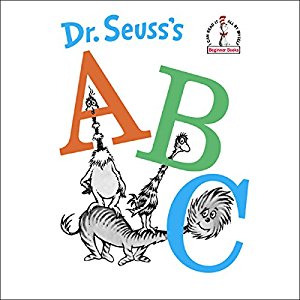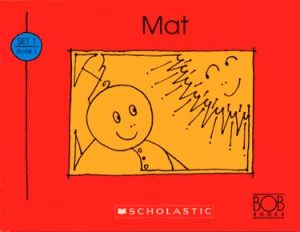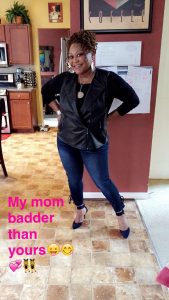My project pitch is called Surgery 1000. This invention targets medical students and health majors. We as patients can only imagine how doctors are so confident in their work. Of course lots of memorization and practice is involved. However, what f there were a VR head set that let one perform surgeries on virtualized bodies. This new invention would help doctors, surgeons, and pre-med students everywhere to get better at helping people and their performance. The exciting part about this invention is being able to work on a body and make the mistakes without hurting anyone. This is also exciting because it would be to doctors use just incase they wanted to practice before a surgery. Imagine how many successful operations would be performed because of the extra practice this head set would offer. This invention would be accessible for colleges, medical schools, and every hospital. The pricing would be between 5-10 thousand dollars for an entire staff, class room, and college institution. Surgery 100 will bring us into the future of saving more lives and bettering more doctors.
Author: mincey lydia n.
Provocation
Summary: In Scene 9 Morris interrogates Doyle for breaking the law in the Hideaway. He began his questions by bringing up how Doyle joined and if he joined as a guest or not. Doyle responded by saying he joined as a guest first. Morris then began to inquire information about Papa. He wanted to know if Doyle has had any contact with him in the Hideaway. Morris also asks about Iris and the little girl that looks similar to Iris. Doyle tells him about how she was sent to boarding school. Morris immediately thinks that when one is sent to boarding school it’s because they’ve done something bad to get them sent there. However that is not always the case. Children can be sent to boarding school for multiple reasons.
Question: Do you believe it was fair for Morris to question Doyle as he did?
Enough Technology to Go Around
As times have changed, there is no doubt that technology has become a huge part of how we live today. The real question is how is that technology being utilized in the classroom setting? As a biology major, I know that I have had to use tactics such as reading online in order to complete my tasks in labs and for major assignments. Although technology is being used to its full potential in the college setting, is it being utilized in all school systems? I believe that technology is a very key component in students’ education for the fact that it will keep them constantly updated and have access to all knowledge possible.
Students in all school systems on each level of education should be presented with all the technology possible. Susanne Murphy believes that the way schools are run today is somewhat ancient. For example, a lot of institutions still expect students to cite their papers the same way they have been doing for the past 20 plus years. However, that isn’t very realistic anymore. Murphy states, “For providers of professional credentials? Who is welcome to contribute to a scholarly field and how should the contribution be evaluated as worthy of consideration by others — and credited when re-used? In what sense are collections of knowledge and archived thoughts relevant to have and to share? Are these collections properly physical, or virtual, or both? Is there any sense in trying to assign “credit” to the shapers of our thoughts, and (as I am interpreting the quotation from Pope in the opening) can/should we separate the source of the idea from the format in which one talented author has chosen to frame it?” ( Murphy). Here she is saying how instead of giving every piece of information a citation, we quote them just as we do on Twitter and Facebook. I agree with this statement because if one is assigned a 10-page paper and utilize a lot of information, one cannot trace and track everything they used to cite their sources. However, they don’t want to be accused of plagiarizing. In addition to Murphy’s research, Paul Lafarge also believed that ancient teachings should be left in the past. In Lafarge’s article “In the Digital Space of Reading” his main topics consist of how reading online is beneficial than reading from the text. In Lafarge’s beliefs, reading online enhances us; he states, “The Internet may cause our minds to wander off, and yet a quick look at the history of books suggests that we have been wandering off all along. When we read, the eye does not progress steadily along the line of text” (Lafarge). I agree with this thinking because if we as humans let our mind wander just dreaming about what we could do with the information, then when reading online we can wander to different links and access different article and vocabulary words that would help us better comprehend what we are learning about.
Regardless of the presented evidence on why technology is fundamental and should be heavily utilized in the classroom, In the article “Is Google Making Us Stupid” by Nicholas Carr, he mentions how reading online is in a way transforming his brain to the point where he cannot read an actual book. He also makes note that when reading online he tends to jump around in the text and begins to feel anxious when having to actually read for comprehension online. Carr states, “I can feel it, too. Over the past few years I’ve had an uncomfortable sense that someone, or something, has been tinkering with my brain, remapping the neural circuitry, reprogramming the memory” (Carr). In a way I can definitely understand the new transitions that Carr is experiencing because when developing a new skill, it takes time to evolve. However, if adjustment issues are the reason for not expanding technology in institutions then that’s where I’ll have to disagree. Nothing is easy the first time you try it. Taking time to master a skill will take time and dedication. In addition to Carr’s article, “The Reading Brain In The Digital Age “by Farris Jabr has very similar opinions about how technology is taking over. Specifically related to institutions Jarbr states, ““When taking [a] quiz, volunteers who had read study material on a monitor relied much more on remembering than on knowing, whereas students who read on paper depended equally on remembering and knowing. Garland and her colleagues think that students who read on paper learned the study material more thoroughly” (Jabr). I my opinion and past experiences in high school I do know the feeling of being taught how to take a test instead of being taught the material. However, if enhancing technology in school systems, there will be a lot of hands on and interactive tactics that can help students comprehend and retain information easier.
Understanding that there are both sides to any argument leaves room for any type of adjustments for change. Being closed minded and one sided will not get your point across. As a student reading online has helped me connect a lot of dots that at one time were not filled when reading a hard copied book. Like stated before, I can connect with Jabr when he felt as if students weren’t reading for comprehension, they were just reading for the answers because in high school you are taught how to take a standardized test instead of how to tackle the problems. On the contrary, I agree more with Murphy on her belief of needing to change some of the rules when it comes to technology. I have been in a situation where I had to write a five-page essay and I was not able to remember every citation that I used. So in my defense if we could change the rules the earlier the education, the easier it can be moving up in school level.
Any act of trying to change a system that has been intact for a long period of time can be difficult. However, I believe the rate that we as a society are progressing, it is only going to be a matter of time that ideas such as Murphy’s and Lafarge’s will be a part of every school system K-12 and higher. The unity of technology and the education system can only better students so they can receive every opportunity that is presented to them.

Learning Literacy
Throughout my 14 years of school, I’ve always been ahead in of my peers when it came to literacy. I always passed both my MSA’s and HSA’s with advanced, my lexile score was always at least two grades higher than the grade I was in, and each year I always ended English with at least a B. If it weren’t for the tools and teachers that helped me along the way, I wouldn’t be the proficient reader that I am today.
August 22nd 2000, Richmond VA. Looking back, preschool was the easiest school level to be in. The Learning Playhouse, now owned by Mrs. Milette Allison, is where I got my literacy start. The playhouse wasn’t always the big beautiful daycare that it is now. It used to be a tiny building that had six rooms.Each room was a color of the rainbow. The Red Room (the reading room), The Orange room (the lunch room), The Yellow Room (the play room), The Green Room (the lunch room) The Blue Room (the nap room), and last but not least The Purple room which were just the bathrooms. Throughout the day we’d all transition rooms depending on what time of day it was. We would always start out in the reading room. This room always reminded me of reading a book on a hill under an apple tree on a bright beautiful day. It had lots of reading posters that always had an encouraging message and smelled like warm cinnamon apple pie.

“Okay class, pick a square”. Mrs. Milette would say. “Today we’re going to read Dr. Seuss’s ABC book together”. She said cheerfully yet with a stern determined tone. Typically, every one in day care knew their ABC’s but this time we’d also have to read the words that followed the big bold letter. Reading seemed like a challenge for most kids, but with me, I excelled faster than the rest.

The following year my family and I moved to Hampton VA, to a nice area called Willow Oaks. Right up the street from my home was a catholic school called Gloria Day. I started and finished both Pre-K and Kindergarten there before we came to Maryland. There I was introduced to the book that taught me to read on my own without any assistance. 
Bob books were books that allowed pre-k through K level to master the literacy skill without any help. Every night we were required to read at least three Bob books to our parents and get a signature when we finished. Once we finished the first volume of books, we had to start the second level. As we moved on to the different levels, the reading became longer and more challenging. However, the great part about the tasks is whoever finished all five volumes of the Bob books would earn a gift card to Toys R US. Of course being one of the highest readers in my grade, I was a proud owner of the Toys Are US gift card.
In 2004 my family and I had our last move. Aberdeen MD, is where I began the first grade. The transition from two different states didn’t settle that well with me. I didn’t like my new school and because I had a high score in the reading department in Kindergarten, I was placed in a higher reading course that was pretty intimidating. Coming home from school every day with a book bag full of reading material that was hard to comprehend, began giving me head ache to the point where I no longer wanted to be in the class. However, my mom who is an educator, didn’t believe in dumbing down material because the course work was too hard. She believed that one could learn from the material if it was taught a different way. So my mother and I made flash cards, we had reading time, and we go to the library every Friday to pick out a new book. Having my mom patiently work with me to increase my reading comprehension is the reason I scored so high on all of my standardized testing in the reading category.

The process of learning how to read will determine my future because it taught me the basic ways to tackle any new task. Looking back, I see the determination it took to learn material I was very unfamiliar with, and I was able to feel and see how proud I was to earn all advanced scores and be placed higher than my peers felt. This prepares me for life because if I use the same attitude and skills that I used to learn how to read, then I can learn how to do anything in my profession in school and my career to be successful.